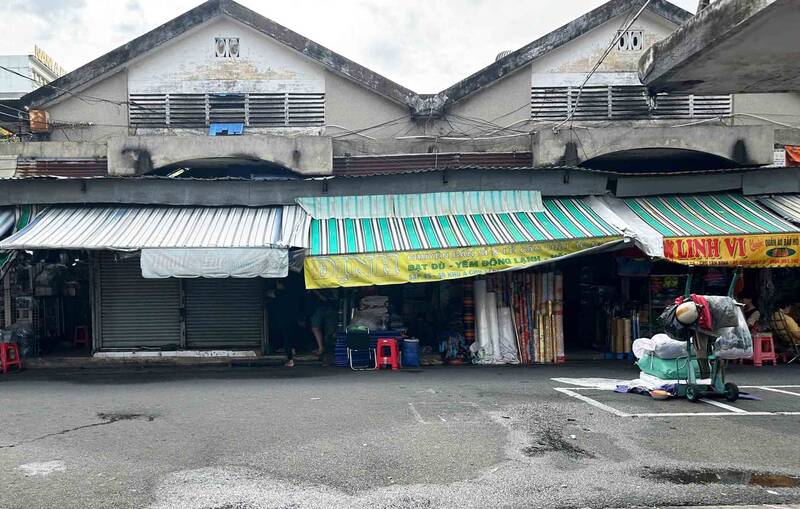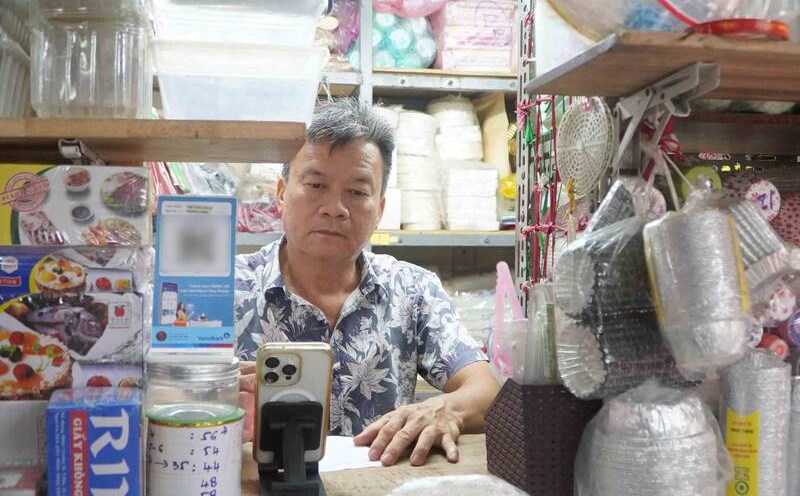Concerns about being checked
Recently, many traditional markets in Ho Chi Minh City have recorded a series of stalls closing. In addition to the reason for business stagnation, a number of traders are also concerned about being checked for goods and origin.

Regarding this issue, Mr. Nguyen Quang Huy - Deputy Head of the Ho Chi Minh City Market Management Department (under the Ho Chi Minh City Department of Industry and Trade) said that in reality, business activities at markets are currently facing many difficulties, especially in storing valid invoices and documents or purchasing goods from sources that cannot provide complete legal documents.
However, according to current regulations, especially Decree 98 amended from Decree 24, trading goods without invoices or legal documents is a violation and will be handled depending on the nature and extent.
The closure of many stalls comes from many causes. First of all, the fluctuating economic situation has caused people's income to decrease, forcing them to spend more frugally and cautiously in shopping. This makes cheap goods, including fake goods and goods of unknown origin, have the opportunity to be consumed, because consumers are not fully aware of the harmful effects.
In addition, it is not ruled out that some business households may temporarily suspend operations to avoid inspection. "We understand and share with traders. Many people have not yet adapted to the new regulations, and need time to adjust and change their business methods to ensure compliance with the law and protect consumer rights, said Mr. Huy.
Solutions for root-based treatment
Mr. Nguyen Nguyen Phuong - Deputy Director of the Department of Industry and Trade of Ho Chi Minh City commented that the simultaneous closure of a series of traders at wholesale markets and traditional markets is an unusual phenomenon. However, it is necessary to understand that the main operation of these markets is to provide raw materials for small and retail production households. large-scale manufacturing enterprises often do not buy goods at wholesale markets, but use their own supply sources, contracts and specific legal bonds.
According to Mr. Phuong, the simultaneous closure of traders is not to stop selling but is a temporary "operation" to avoid the increased inspection and control work.
"From this phenomenon, we have focused on finding solutions to handle it from the root. There is no such thing as checking and waiting for stalls to close or catching errors when traders are both closing and selling secretly behind. That was just the tip. The core problem lies in large warehouses, border goods gathering points or imported goods flows" - Mr. Phuong emphasized.
In addition to inspection and control measures, the authorities said that it is necessary to take advantage of market strength as a driving force to force business entities to operate more transparently and responsibly.
Currently, the Ho Chi Minh City Department of Industry and Trade is implementing the program "Green ticket for e-commerce responsibility", with the participation of three main groups of entities: e-commerce platforms, sellers and marketing businesses associated with the KOL and KOC communities. Each participating group must comply with a separate set of rules, including 6 commitment terms.
This program is a continuation of the "Responsible green ticket" model that has been applied in the retail system in recent times, to screen the market. Accordingly, businesses and products that do not ensure quality will gradually be eliminated, while model and honest business units will be recognized and honored.











